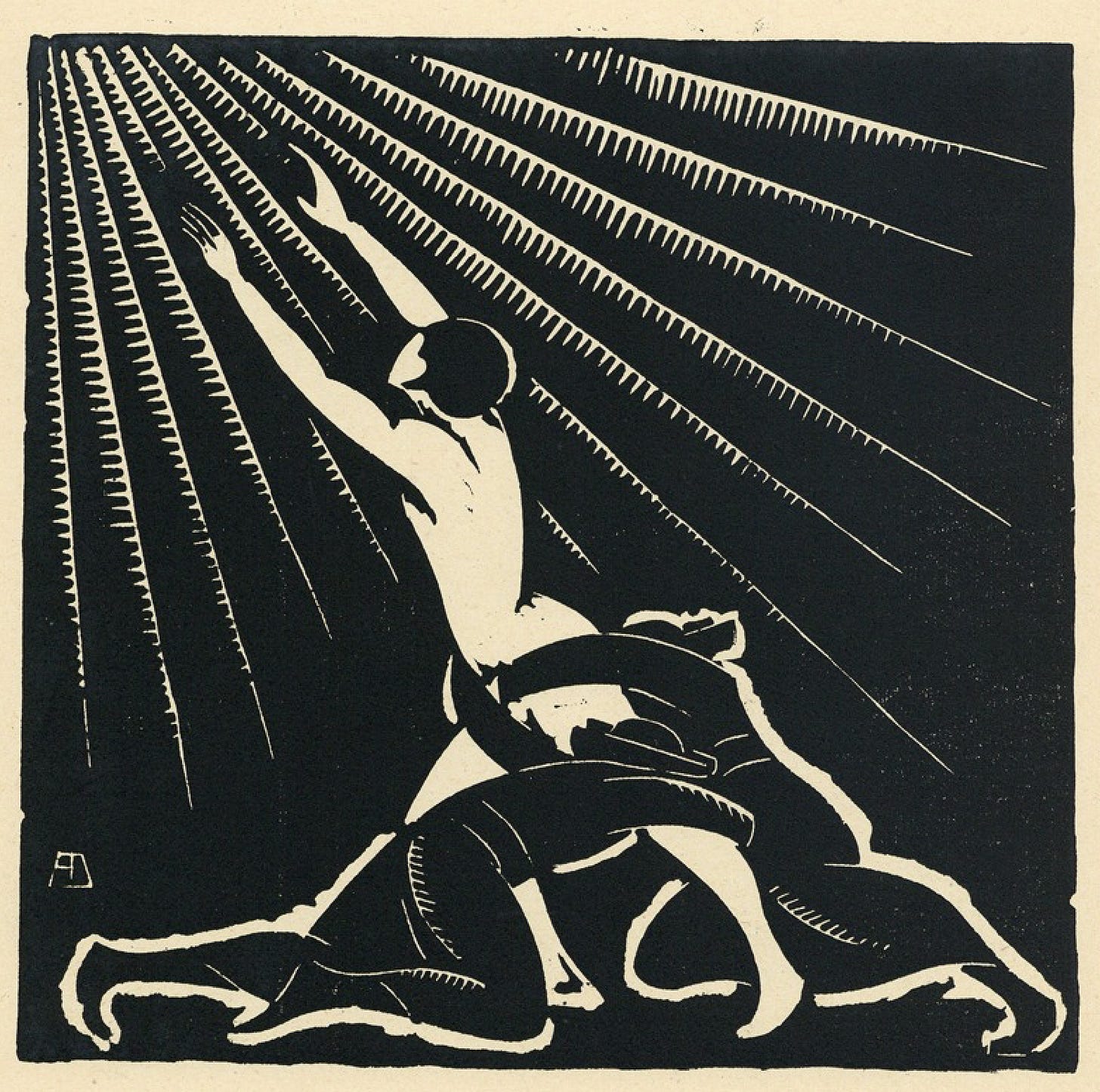Greetings, writers—
“On the first full day of summer the sun is up/ the sky as far as it will get,” writes Ellen Dudley in her poem “Summer Solstice.”
Here in Portland, this high lingering sun is hidden, which I don’t even mind; I remember when it used to rain every day until July 4th. One year—the one in which the summer weather lasted exactly a month—I was biking along the Willamette Bluff, and the way the late August light slanted across the road and tumbled down the hill into the river caused an attack of geographical panic: “I don’t belong here,” I thought. “I’m living the wrong life.”
The feeling left as suddenly as it had come, thankfully, though I don’t think I’ll ever consider myself a West Coaster. Jon and I have a (wholly untested) theory that the place you lived until you were eight or nine is, in some deep primal and animal way, your home (Northern California for him, New England for me, places we’ll likely never live again).
But this post isn’t actually about where we live. It’s about what we do when what we do is writing, and about a line that I saw in a YouTube interview with the novelist Rachel Cusk1 that made me remember that long-ago afternoon.
“Talent,” Cusk says, “is like personality, like any version of fate. It responds to how it is treated.” You can fail to serve your talent, she says, and when you do that, it means that “you can live the wrong life.”2
Of course we don’t want to feel like we’re living the wrong life, geographically, creatively, or in any other way. This isn’t to say we expect to live the perfectly right one, either, in which we get to scribble away the days in our lovely Parisian apartment overlooking the Seine or whatever3—rather, that our job is to pay attention to our gifts and do whatever we can to nourish them.
Whether it’s writing every single day, dedicating weekend mornings to your novel, or dictating dialogue into your phone while walking the dog, you just have to show up for your work.
One way to show up? Do a writing prompt! Here are two:
—Desire and discipline, Cusk assures us, are equally if not more important than talent. The latter is “a massive component of creating a body of work, and the further I get, the more I see that that really is true.4” One of her practices, as a disciplined young writer, was to copy the work of the greats. “I still think that's the right way to learn a practice, to imitate others,” she says.
Today, copy from a favorite author: write a poem that sounds like Federico García Lorca, or a tiny story that sounds like Lydia Davis, or a scene that could’ve come out of Edith Wharton, or whoever it is that you love.
—Write a scene in which one of your characters comes to understand that he or she is living the wrong life.
Happy writing—
Emily
P.S. The sun just peeked out.
Cusk is the author of many novels but is best known for the trilogy that includes Outline, Transit, and Kudos. Each of these books, writes Patricia Lockwood in the LRB, “is composed of a series of conversations – with strangers, with old friends and ex-lovers and her hairdresser, with her two sons. But as they unfold it becomes clear that they are fantasies in which the infinitesimal openings of small talk eventually drill down to the centre of the earth.”
On the page, Cusk can seem stern and scary to some, and a couple of her books have sparked actual outrage. “I'm surprised to find I like her,” admitted a Guardian journalist. (!) “I annoy everybody, not just certain women,” Cusk says in that interview. In a more positive light, the writer Merve Emre called her “the most unsettling and philosophically astute British novelist at work today.”
Not actually my fantasy at all, just something that came to mind.
Planning is also important! These days she’s far from a copier—for three years she didn’t even read fiction at all. Instead, she is a planner. “I've written a lot of books,” Cusk says, “and I know that it’s easy to begin them, but that it’s really like setting out on a mountain-climbing trip without the right equipment and not having read the weather forecast.”
After realizing that some of the books she started couldn’t possibly be finished, now she makes sure that she can hold the whole structure of the book in her head before she begins.





mornings sad eyes made
from sorrowful dreams
and unvarnished hopes
baptized by warm breezes
and welcoming smiles yet
you, spoiled for laughter, weep.
Showing up is the battle indeed. Results are beyond my control.